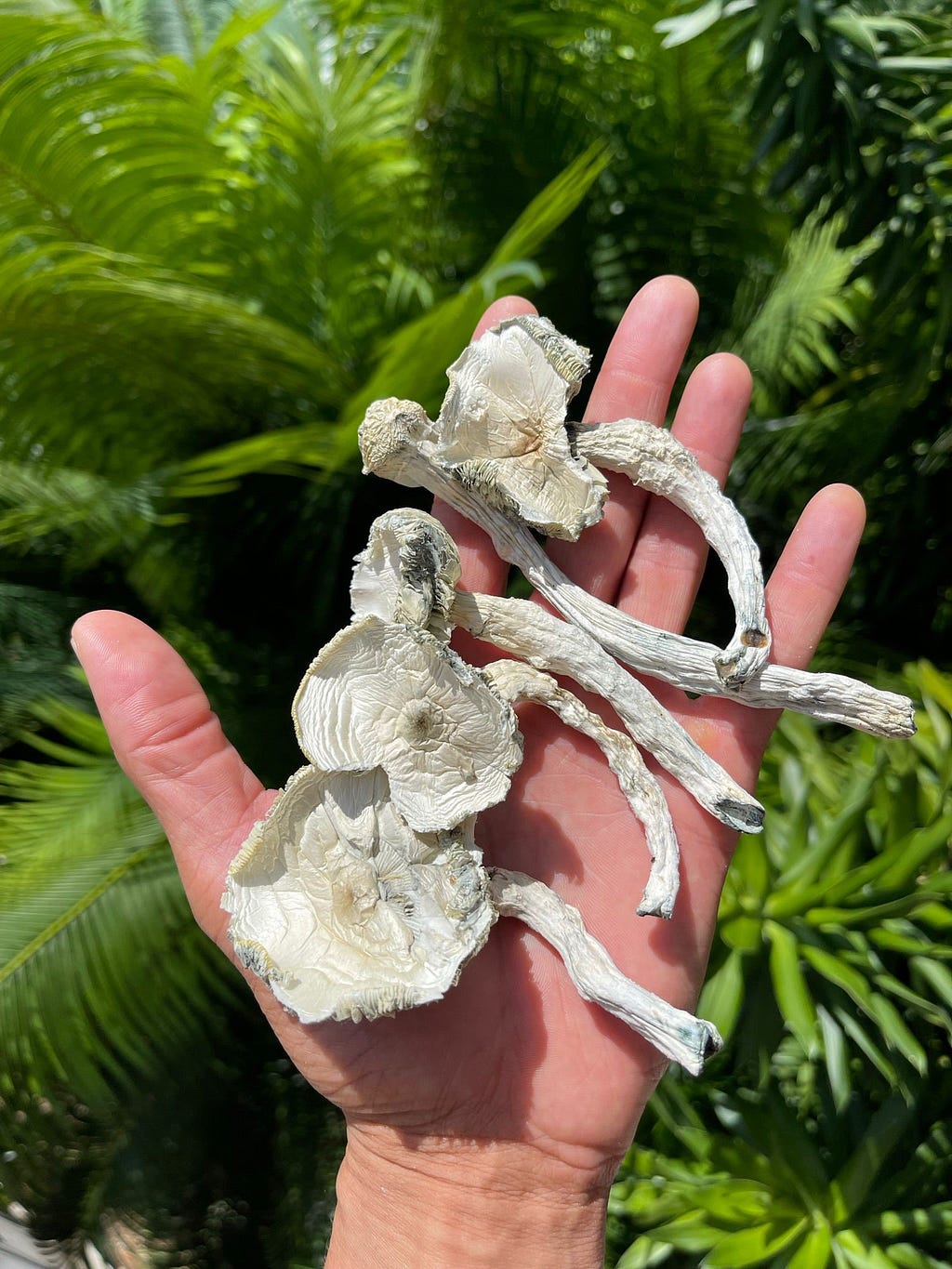Farmers Who Are Embracing New Technologies: Charles Lazarus Of Rose Hill On The New Rules of Farming and Agriculture
An Interview With Martita Mestey
Adaptability: Farming is unpredictable: climate, market, and tech are always shifting.
The agriculture industry is undergoing a significant transformation as new technologies are being introduced and adopted. These innovations are not only improving efficiency, productivity, and sustainability but also enabling farmers to adapt to the challenges of climate change and shifting market demands. Farmers who embrace these cutting-edge solutions are playing a vital role in shaping the future of agriculture. As a part of this series, I had the pleasure of interviewing Charles Lazarus.
Charles Lazarus, Chief Executive Officer of Rose Hill, has over a decade of expertise in psilocybin genetic development, cultivation, extraction, and logistics, culminating in the cultivation and delivery of the world’s largest legal premium psilocybin shipment. Since 2015, he has developed proprietary psilocybin genetics and solutions for the Jamaican market and major R&D clients. Additionally, he owned and operated Island Fresh Ltd., exporting fresh fruit and Jamaican brands to the UK market and achieving the highest export volumes from Jamaica for three consecutive years. He also served as Harvest Manager in California from 2013 to 2017.
Thank you so much for joining us in this interview series! Before we dig in, our readers would like to get to know you. Can you tell us a bit about how you grew up?
I was born and raised in Jamaica where farming is close to the culture. Growing up on my family’s Pimento farm I was surrounded by the natural rhythm of planting and harvesting. That experience gave me deep respect for the land and inspired early thoughts about how we could make farming more efficient, more sustainable, and more centered around people.
Before I got into my current interest in mycology and the cultivation of psilocybin mushrooms, I was exporting Jamaican ground provisions such as yam, sweet potato & cocoa along with native fruits to the Jamaican and ethnic markets in England, primarily London and Manchester. I worked closely with rural farmers fitting into the complex system that was there before me. However, that process was time consuming and required tremendous attention so I eventually burnt out.
Shifting into mushroom cultivation felt like a fresh start. Psilocybin mushrooms have shown remarkable therapeutic potential for mental health, which gave this new chapter a real sense of purpose. Now, with Rose Hill, the company I co-founded, we’ve got a small tight team of just four people. That smaller scale lets us really focus on quality and control, which is super important when you’re working in such a sensitive biological space.
Can you share the most interesting story that happened to you since you began your career?
One of the most pivotal moments in my career was when Rose Hill became the first company to legally export psilocybin mushrooms from Jamaica to Canada. It was the culmination of years of research, regulatory navigation, and refining our cultivation techniques to meet global standards. That milestone proved that a small island nation could lead the charge in an emerging industry and set a precedent for responsible, sustainable psychedelic agriculture.
You are a successful leader. Which three character traits do you think were most instrumental to your success? Can you please share a story or example for each?
- Resilience — Farming in Jamaica comes with its own challenges: unpredictable weather, regulatory hurdles, and high energy costs. Being self-taught, a lot of it was trial and error. But I never folded. At Rose Hill, when we come across any obstacles, we regroup, adapt, and keep pushing.
- Communication skills — Whether it’s explaining complex cultivation processes to new team members or creating a space where ideas can flow, communication is key. At Rose Hill, we’ve built a culture where people from all over the world can stay on the property, collaborate, and share what they know. That open, welcoming environment makes all the difference.
- Networking — Most of what I’ve learned has come from this global community — mycologists, cannabis farmers, and even a few old bandmates who’ve become growers. We trade techniques, troubleshoot challenges, and share what works. That kind of openness and knowledge-sharing is rare and priceless.
Are you working on any exciting new projects now? How do you think that will help people?
We’ve recently upgraded our facility at Rose Hill, doubling our biomass output. This allows us to better support research institutions like the University of Guelph, where we’re collaborating on studies exploring psilocybin’s potential effects on the adolescent brain, particularly in relation to autism. These upgrades also ensure we can provide a stable, high-quality supply of psilocybin for scientific research into its therapeutic potential.
Another major reason for the upgrade was to stabilize our electricity demand. We’re currently powered by geothermal energy and would like to integrate solar to make that system even more reliable and sustainable.
On the environmental side, our farm produces a large amount of used mushroom substrate. Instead of letting it go to waste, we’re composting it into nutrient-rich organic soil — something plants around the farm and surrounding areas thrive on. It’s all part of our commitment to turning waste into something regenerative and community focused.
Ok super. Thank you for all that. Let’s now shift to the main focus of our interview. Why do you think it is so important for farmers to embrace new technologies?
Agriculture is evolving fast. Climate change, resource scarcity, and market demands are forcing farmers to adapt. New technologies help us grow more with less — less water, less energy, and less waste — while protecting the environment and improving long-term sustainability.
Can you share with our readers some examples of the most innovative technologies that you or other farmers have adopted? How have these technologies impacted your farming practices and overall results?
Our geothermal system is a huge win. It regulates climate and humidity naturally by leveraging the earth’s temperature, which helps us avoid the sky-high electricity costs Jamaica is known for. We also use a positive pressure airflow system in our lab to prevent contamination — critical in mushroom cultivation, especially with sensitive strains like psilocybin and in the tropics where the spore load in the air can be very high.
What were some of the challenges you faced in adopting new technologies, and how did you overcome them? Are there any lessons you learned that you could share with other farmers who are considering adopting new technologies?
We had to adapt global tech to fit Jamaica’s unique climate, which meant rethinking the usual greenhouse playbook. It’s hot, humid, and the power supply can be unpredictable. Investing in geothermal systems gave us better climate control while cutting down on energy use. One key lesson: technology isn’t one-size-fits-all — it has to work with local realities. We start small, run trials, and fine-tune based on results.
Have these new technologies helped you to improve the sustainability of your farming practices and contribute to environmental conservation efforts? How?
Definitely. We’ve cut our energy usage significantly and are producing less waste. The spent substrate from mushroom production is now being used as a base for organic soil. We’re closing the loop in our system, which makes the farm more sustainable and beneficial to our local community.
In your opinion, what are some of the most promising emerging technologies in the agriculture sector, and how do you think they will shape the industry in the coming years?
Precision agriculture, AI-driven monitoring, and sustainable energy solutions will define the future. The ability to optimize growing conditions in real-time through data analytics will lead to more resilient and productive farms.
How can governments and other stakeholders support the adoption of new technologies by farmers, particularly those with limited resources or access to information?
We treat mushrooms as a farm product first. Psilocybin is simply one compound within them, regulated, yes, but secondary to the mushroom itself, which follows the same cultivation protocols as any edible or functional variety. That’s why we’ve started with functional and edible mushrooms, building out systems now that will make transitioning to psychedelics smoother when the time comes.
To truly support this kind of innovation, governments need to invest in infrastructure — especially internet access and rural advisory services — so farmers can tap into the latest tools and knowledge. Training, funding, and public-private partnerships are also key. In Jamaica, we’re often disconnected from institutional support, so a stronger policy framework could really help close that gap.
Can you share any examples of how technology has helped farmers adapt to the challenges posed by climate change or shifting market demands?
In Jamaica, extreme heat and humidity threaten crop yields. Our geothermal system stabilizes temperature and humidity, allowing us to grow high-quality psilocybin mushrooms consistently, regardless of external conditions.
What role do you think data analytics and artificial intelligence can play in the future of agriculture, and how can farmers best leverage these tools?
Data and AI can be game changers. They allow you to track strain yields, compare growth variables, and predict outcomes based on past performance. That insight helps optimize production and reduce waste. Eventually, we’ll be able to run side-by-side trials and let AI tell us what’s working and what’s not.

What are the “5 Things You Need To Create A Successful Career In The Farming And Agriculture Industries” and why?
- Adaptability: Farming is unpredictable: climate, market, and tech are always shifting.
- Perseverance: You’re going to face setbacks. Keep going anyway.
- Empathy: For your team, your community, and your customers. That’s how you create affordable, accessible products.
- Networking: Don’t just look local, connect globally. In this industry, collaboration trumps competition.
- Community: Work with local and indigenous groups, honor the land, and stay rooted in purpose. At Rose Hill, we sponsor community wellness events like sound bath ceremonies that help people reconnect with the deeper “why” behind the medicine.
Are there other ideas or considerations that should encourage us to reimagine the future of farming?
Farming should be regenerative, not extractive. That means restoring soil health, conserving water, and reducing emissions. The next generation of agriculture should nourish both people and the planet.
You are a person of great influence. If you could inspire a movement that would bring the most amount of good to the most amount of people, what would that be? You never know what your idea can trigger. 🙂
I would wish to influence Jamaican Dancehall Music culture into the practice of conscious awareness through psychedelic acceptance. Too often the themes of our culture are focused on a positive perception of negative activity, and it is my opinion that this default loop could be hijacked by the influence of a practice of evolution.
How can our readers further follow your work online?
You can learn more about Rose Hill at https://rosehill.life and follow us on LinkedIn.
and Instagram @rosehill.life.
This was very inspiring and informative. Thank you so much for the time you spent with this interview!
Farmers Who Are Embracing New Technologies: Charles Lazarus Of Rose Hill On The New Rules of… was originally published in Authority Magazine on Medium, where people are continuing the conversation by highlighting and responding to this story.


